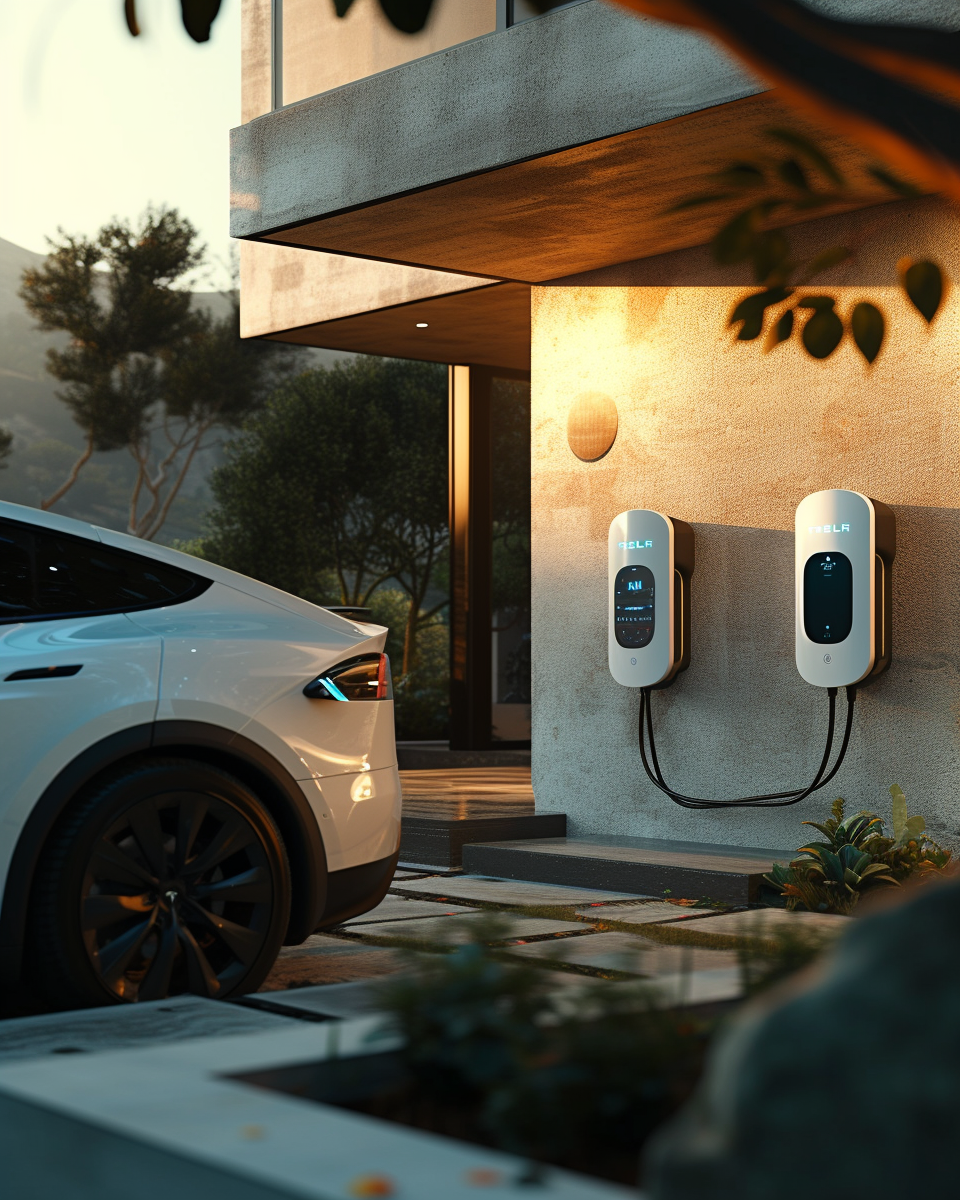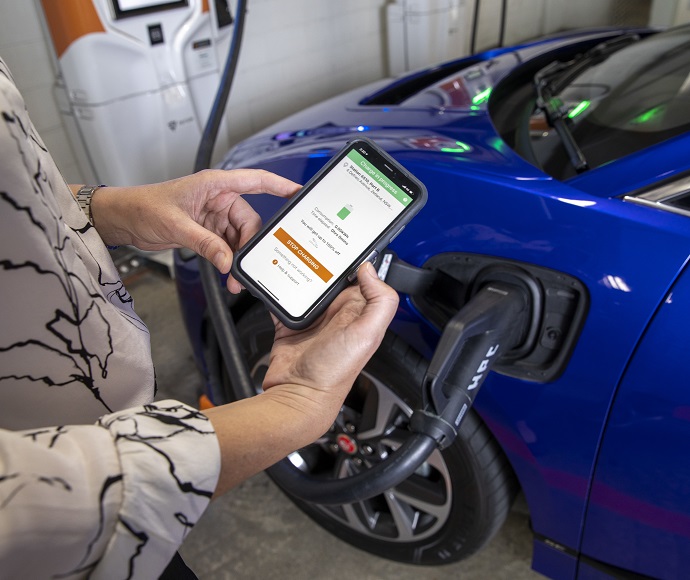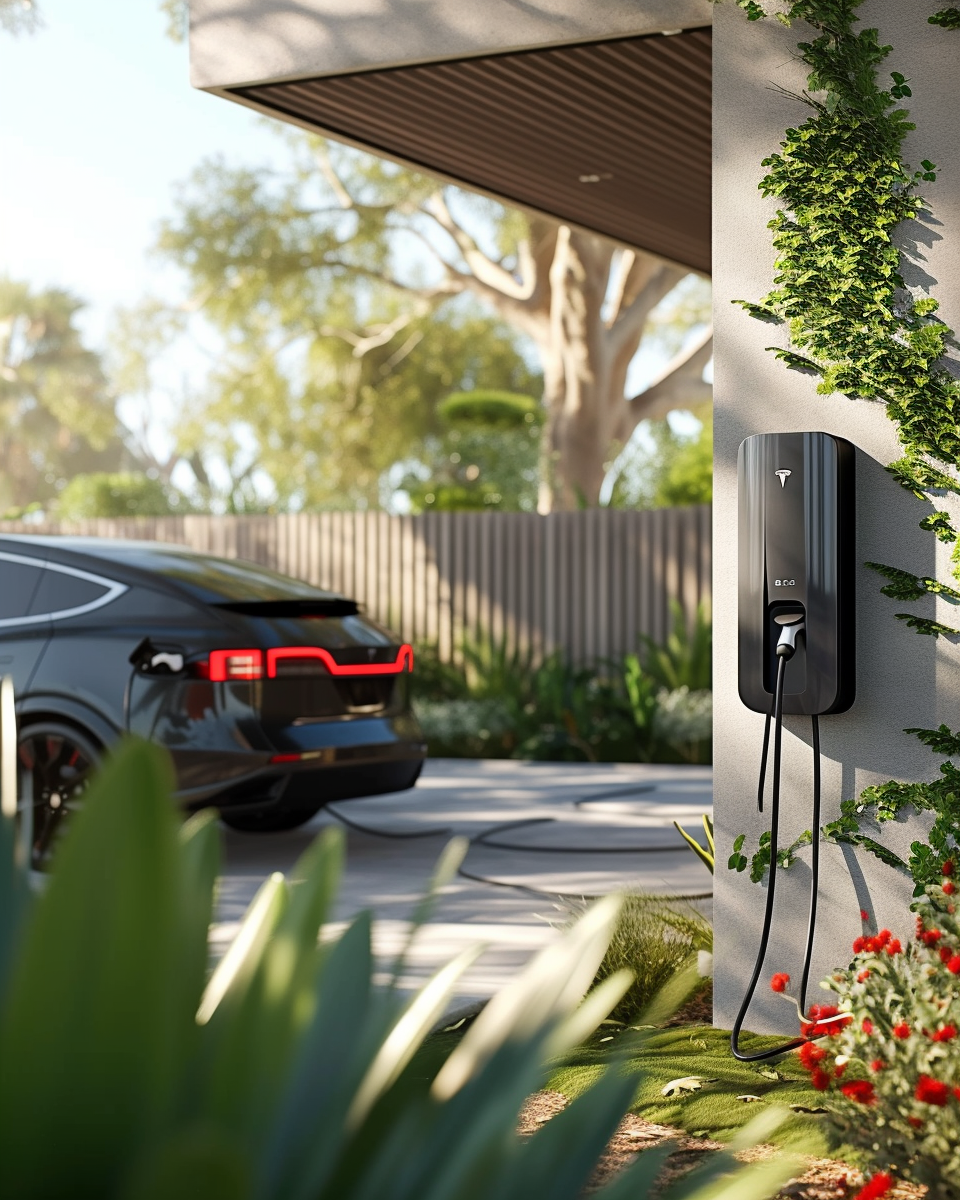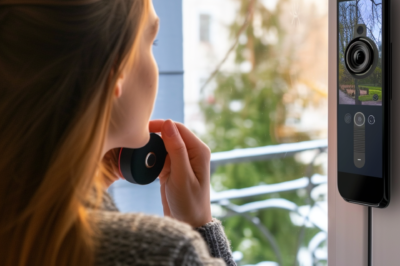
Key Takeaways
-
Smart home energy integration allows for efficient EV charging, leading to cost savings and environmental benefits.
-
Choosing the right smart EV charger is crucial for compatibility with your home energy system and to maximize benefits.
-
Installation of a smart EV charger should be planned with attention to detail, considering both technical requirements and regulations.
-
Syncing your EV charger with a solar energy system can provide clean, cost-effective charging.
-
Smart charging management includes scheduling to reduce costs and monitoring energy usage for insights into your consumption patterns.
Your Smart home has technology which, with a simple command sets your home to greet you with perfect lighting and temperature. Using built in Smart EV chargers it also starts fueling your electric vehicle (EV) with energy harnessed from the sun that day.
With your Smart home, everything is connected.
What is the best smart EV charger for home use?
The “best” smart EV charger depends on your specific needs, but generally, you’ll want one that’s fast, reliable, and compatible with your smart home system. Look for chargers with features like adjustable amperage, Wi-Fi connectivity, and scheduling capabilities. Brands like Enphase and Schneider Electric offer robust solutions that can cater to a variety of needs and preferences.
Can I integrate my current EV charger with a smart home system?
It’s possible, depending on the make and model of your EV charger. Some chargers come with smart capabilities built-in, while others may require an additional smart module or adapter. Check with your charger’s manufacturer for compatibility options and necessary upgrades.
The Push for Smart Home Integration
The idea of a smart home is to make life easier, more efficient, and yes, a bit more futuristic. Integrating your home’s energy system with your EV charger is a natural step in this evolution. Why? Because it allows for seamless control over your energy consumption, which is not just convenient but also smart for your wallet and the planet.
How EV Charging Fits into the Smart Home Puzzle
EV charging at home isn’t just about plugging in and waiting for the battery to fill up. It’s about choosing the most efficient time to charge, minimizing the impact on the grid, and making the most of renewable energy sources. Integrating EV charging with your smart home energy system makes this all possible.
Step Up Your Home Energy Game
Before diving into the world of smart charging, it’s essential to understand the basics of your home’s energy system. This includes how electricity gets to your house, how it’s distributed across your appliances, and how smart devices can help you manage it all more effectively.
What Do You Need to Get Started?
Getting started with smart home energy integration isn’t as daunting as it might seem. Here’s a simple list to help you begin:
-
A smart EV charger that’s compatible with your vehicle and home energy system.
-
An energy management system (EMS) to oversee your energy usage and production.
-
Smart home devices, such as thermostats and lighting, that can be controlled remotely and programmed for efficiency.
Once you have the right tools in place, you’re ready to embark on a journey of energy efficiency that not only simplifies your life but also contributes to a more sustainable future.
Decoding the Tech: Understanding Your Smart Energy System
Your smart energy system is the brain of your home’s energy use. It consists of smart meters, sensors, and controllers that work together to manage how energy is used and produced in your home. Think of it as a personal energy advisor that always looks for ways to save you money and reduce your carbon footprint.

Smart EV Charging 101
Smart EV charging is all about using technology to charge your electric vehicle in the most efficient way possible. This can mean charging when electricity rates are lowest or when your solar panels are producing excess power. Smart chargers can even communicate with your utility to charge during times of lower demand on the grid.
Smart chargers come with features like remote control, scheduling, and energy tracking, which give you unprecedented control over the charging process.
Choosing the Right EV Charger for Your Home
Selecting the right EV charger is a critical step in integrating smart home energy. You’ll want to consider:
-
Charging speed: How fast do you want your vehicle to charge?
-
Connectivity: Does the charger easily integrate with your smart home system?
-
Features: Are features like scheduling and energy tracking important to you?
-
Warranty and support: What kind of support does the manufacturer offer?
Make sure the charger you choose is compatible with both your vehicle and your home energy system. This will save you a lot of headaches down the road.
Installation Essentials: Making It Happen
Installing a smart EV charger is a job for professionals. You’ll need a qualified electrician who can handle the electrical work and ensure everything is up to code. Here’s what the installation process typically involves:
-
Evaluating your current electrical system to determine if it can handle the additional load of an EV charger.
-
Upgrading your electrical panel if necessary.
-
Installing the charger in a location that’s convenient for charging your vehicle.
-
Ensuring the charger is properly connected to your smart home system for optimal functionality.
Remember, safety first. Never attempt to install an EV charger if you’re not a certified electrician. Besides that, incorrect installation can void warranties and potentially cause harm to your vehicle or home.
Linking Devices: Compatibility is Crucial
When it comes to integrating smart home energy with EV charging, compatibility is not just important—it’s essential. Your smart charger needs to ‘talk’ to your home energy management system. This is where choosing devices that speak the same ‘language’, like Matter or Zigbee, makes a difference. It ensures that your devices work together harmoniously, creating a seamless experience for you.
Syncing with Solar: Charge Your Car with Sunshine
For those with solar panels, integrating your EV charger is the most energy efficient option. By syncing your charger with your solar energy system, you can charge your car with the clean energy you produce. Not only does this reduce your carbon footprint, but it also uses energy that’s already paid for, making it effectively free.
Managing Energy: Smarter, Not Harder
-
Automate your energy usage to align with the most cost-effective times.
-
Use smart devices that learn your habits and adjust to optimize energy efficiency.
-
Monitor your energy consumption to find new ways to save.
Managing your home’s energy smartly means leveraging technology to make decisions that would be too complex or time-consuming to make manually. For instance, your smart system can decide the best time to charge your EV based on your schedule, electricity rates, and the availability of solar power.
But managing energy smartly isn’t just about automated technology; it’s about having the right information at your fingertips. With the latest smart home systems, you can see exactly how much energy you’re using—and saving—in real time. This information can help you make more informed decisions about your energy use.
And let’s not forget about convenience. Being able to control your home’s energy system from your smartphone or tablet means you can adjust settings on the fly, whether you’re on the couch or halfway around the world.
Scheduling Charging Times to Save Money
One of the most straightforward ways to save money with smart charging is to schedule your EV to charge during off-peak hours when electricity rates are lower. Many utilities offer time-of-use plans that make this strategy particularly effective. All you have to do is set the schedule on your smart charger, and it will do the rest, ensuring your car is charged and ready when you need it, without overpaying for electricity.
Monitoring Energy Usage in Real-Time
Real-time energy monitoring is like having a health tracker for your home’s energy consumption. It gives you instant feedback on how much energy you’re using and when you’re using it. This can help you identify patterns and make adjustments to save energy. For example, you might find that charging your EV just a bit later at night reduces your costs significantly.
Benefit Breakdown
Integrating smart home energy with EV charging offers a range of benefits. Let’s break them down:
Economic Advantages of Smart Charging
Smart charging can significantly reduce your electricity bill by:
-
Allowing you to charge your EV during off-peak hours when rates are lower.
-
Enabling you to make the most of solar energy, potentially charging your car for free.
-
Providing you with data to make informed decisions about energy usage.
And while smart chargers may cost more upfront, the long-term savings on your energy bills can make them a wise investment.

Why Going Smart Means Going Green
By optimizing the timing of your EV charging, you’re not just saving money—you’re also contributing to a greener planet. Smart charging can reduce the strain on the electric grid, especially during peak times. Additionally, by syncing with solar panels, you’re using clean, renewable energy to power your vehicle, reducing your reliance on fossil fuels.
And because smart chargers are more efficient, they can help reduce overall energy consumption, further minimizing your environmental impact.
Overcoming Common Challenges
While the benefits of integrating smart home energy with EV charging are clear, there are some challenges you might face along the way. But don’t worry, they can be overcome with the right approach.
Addressing Technical Hurdles
Technical challenges, such as ensuring device compatibility and setting up a reliable home network, can be daunting. However, with the emergence of universal standards like Matter, these hurdles are becoming less significant. When in doubt, consult with a professional who can guide you through the technical maze.
Navigating Regulations and Rebates
Regulations and incentives can vary greatly depending on where you live. To navigate this landscape:
-
Research local building codes and regulations regarding EV charger installation.
-
Look into federal, state, or local rebates and incentives for installing smart energy devices and EV chargers.
-
Consult with a professional installer who’s familiar with the regulations in your area.
By staying informed and seeking expert advice, you can take full advantage of the financial incentives available for smart home energy integration.
Looking Ahead: The Impact on Lifestyle and Environment
As we steer towards a more connected and environmentally conscious world, the integration of smart home energy with EV charging is set to transform our daily lives and the environment in profound ways.
Let’s explore how this integration not only streamlines our lifestyle but also promises long-term environmental benefits.
How Integration Simplifies Daily Life
The beauty of integrating smart home energy systems with EV charging lies in the convenience and efficiency it brings to our daily routine. Imagine your car charging schedule adjusting automatically based on your next day’s calendar events or the energy consumption patterns in your home. This level of automation and smart management is not just futuristic; it’s practical, saving you time and effort every day.
Moreover, the integration ensures that your EV is always ready when you need it, without any last-minute surprises. This smart system can also adjust your home’s energy consumption when your car is charging, ensuring that you don’t overload your system and potentially cause outages or damage.
Long-Term Environmental Benefits of Smart Charging
One of the most compelling reasons to integrate smart home energy with EV charging is the positive impact on the environment. By optimizing the use of renewable energy sources and reducing the demand on the grid during peak times, we can significantly lower our carbon footprint. In the long run, widespread adoption of smart charging could lead to a substantial reduction in greenhouse gas emissions, contributing to the fight against climate change.
FAQ
As we wrap up, let’s address some common questions about integrating smart home energy with EV charging.
How does smart EV charging save money?
Smart EV charging saves money by allowing you to charge your vehicle during off-peak hours when electricity rates are lower. Additionally, by using your home’s solar energy, you can reduce or even eliminate your charging costs. Smart chargers also provide insights into your energy usage, helping you make more informed decisions that lead to further savings.
Is it possible to use solar energy to charge my EV?
Absolutely! If you have a solar panel system installed, you can connect your EV charger to it and use the clean energy you produce to charge your car. This not only reduces your reliance on the grid but also maximizes the use of your solar investment.
What are the first steps to upgrading my home energy system for EV charging integration?
To start, assess your current energy system and determine what upgrades are necessary for integration. This may include adding a smart EV charger, upgrading your electrical panel, or installing a home energy management system. Consulting with a professional can provide guidance tailored to your specific situation and ensure that you comply with all local codes and regulations.



